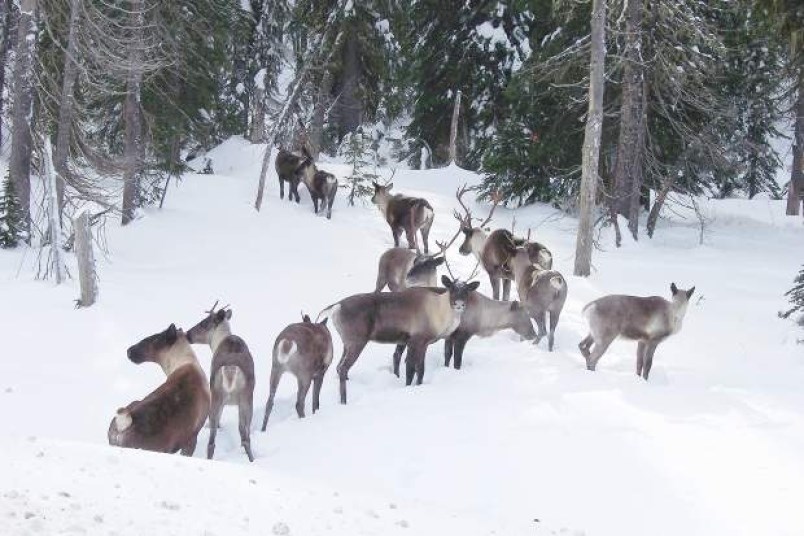Draft agreements to protect and recover endangered caribou populations in the South Peace carry an "offensive tone" and are "highly vulnerable" to a court challenge, a Northern B.C. First Nation says.
The McLeod Lake Indian Band says both B.C. and Canada have failed to engage them in talks about two agreements drafted between the two governments, and the West Moberly and Saulteau First Nations. The agreements could potentially impact the band's treaty rights, Chief Harley Chingee wrote in a May 23 letter.
"Should the agreements be executed without the requisite engagement with MLIB, they will be highly vulnerable to legal challenge and termination," Chingee wrote.
The band met earlier this month with Blair Lekstrom, who was appointed by Premier John Horgan to be a community liaison after public outcry over the lack of transparency and public accountability surrounding the negotiations.
West Moberly and Saulteau have been negotiating agreements with the provincial and federal governments that will curb industrial and backcountry access in areas around Chetwynd and Tumbler Ridge to save half a dozen endangered herds from extirpation. The agreements also call for financing for maternal penning, habitat restoration, predator control programs, as well as a new indigenous-led environmental stewardship program.
But by excluding McLeod Lake from the process, the agreements will likely have "widespread" effects on the band's treaty rights and socio-economic interests, particularly in forestry, if they aren't amended, Chingee wrote.
The agreements exclude the band from consensus based decision-making between indigenous nations, lack significant detail, and "have a generally offensive tone," he wrote.
The band should either be party to the agreement with West Moberly and Saulteau, and take part in determining population estimates, recovery targets, and conservation measures. Or, the two governments must draft a separate partnership agreement with McLeod Lake, Chingee said.
"In-depth and meaningful engagement with MLIB -- before the Partnership Agreement is executed -- is critical to ensure such adverse impacts are avoided to the maximum extent possible, and minimized or accommodated where not avoidable," Chingee wrote.
Negotiations with West Moberly and Saulteau have continued for more than a year despite repeated calls by local governments, MLAs, and industry in the Peace River region to be included. More than 30,000 people signed a petition that was delivered to the legislature calling for a halt to the negotiations until all parties were included.
The province has said it has a constitutional obligation to work with the two First Nations under Treaty 8 to draft the deals, prompted last year after the federal government declared the herds in the South Peace to be facing an imminent threat to their survival and recovery.
Numbers in the central group of the southern mountain caribou herds around Chetwynd and Tumbler Ridge have dropped from between 800 to 1,000 in the 1990s, to around 230 today.
McLeod Lake is a signatory to Treaty 8.
In a statement, the ministry of foresty and lands said it did reach out to McLeod Lake, and acknowledged its meeting with special liaison Blair Lekstrom.
"The B.C. government appreciates their concerns and will be considering the issues they raise," the ministry said.
"The government will also be considering Blair Lekstrom's report, the economic impact analysis and feedback from the public engagement process before making final decisions on the draft partnership agreement."



